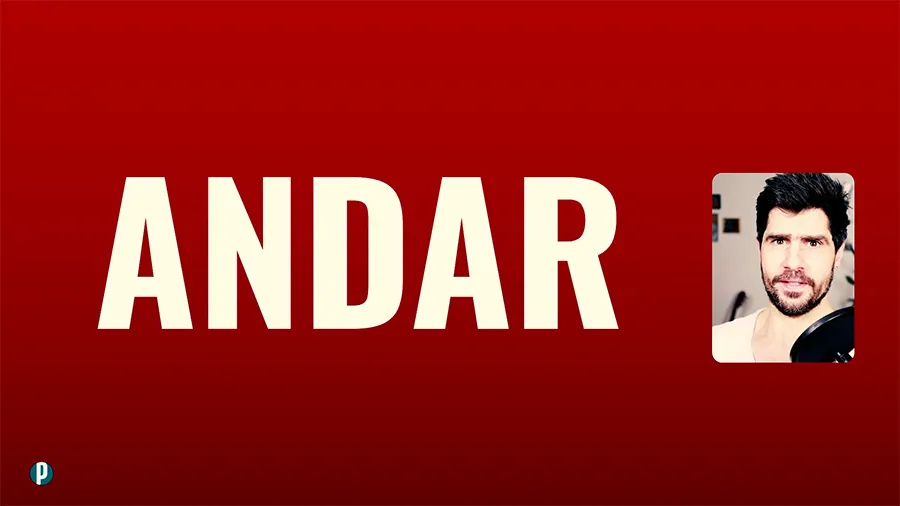Czasowniki portugalskie „Ir” kontra „Andar” – wiedz, kiedy użyć któregoś z nich
Zauważyłem, że osoby uczące się języka portugalskiego często używają tego czasownika Andar kiedy chcą powiedzieć Ir, i wzajemnie.
Dzieje się tak niemal bez wyjątku w kontekście, w którym implikuje się środki transportu i mobilność.
Oto różnica. Używamy Andar mówić ogólnie o środkach transportu. Jednak przechodzimy na Ir skoro już wspomnieliśmy o ostatecznym miejscu docelowym:
| ANDAR Eu ando de carro todos os dias. Na co dzień korzystam z samochodu. IR Amanhã, vou de carro até ao Porto. Jutro jadę samochodem do Porto. |
Zanurzmy się.
Andar
Koniugacja
| Presente | Pretérito Perfeito | Pretérito Imperfeito | |
| Eu | ando | andei | andava |
| Tu | andas | andaste | andavas |
| Você Ele, ela | anda | andou | andava |
| Nós | andamos | andamos | andávamos |
| Vocês Eles, elas | andam | andaram | andavam |
Dowiedz się więcej o portugalskich czasownikach regularnych:
Portugalskie czasowniki regularne i wzorce koniugacji w czasie teraźniejszym
Portugalskie czasowniki regularne dla czasu przeszłego
Usage

Olá! I'm Pedro and I'm your Portuguese teacher.
Learning European Portuguese? Portuguesepedia is an all-in-one platform providing a wealth of learning resources, from bite-sized video lessons to immersive idiomatic dips. Perfect your pronunciation and listening comprehension with listening drills and solidify your grammar with in-depth articles. Start your Portuguese journey today!
Share this article
Get my guide "Key Strategies to Learn Portuguese" for FREE.


